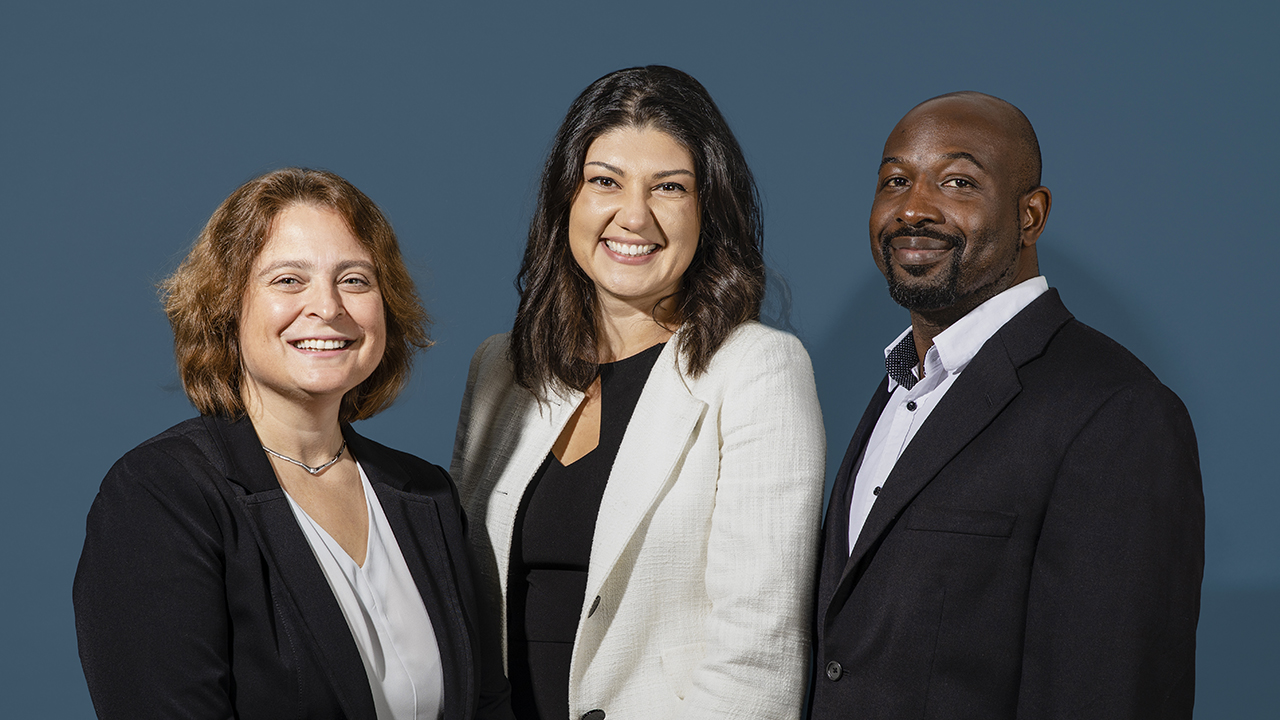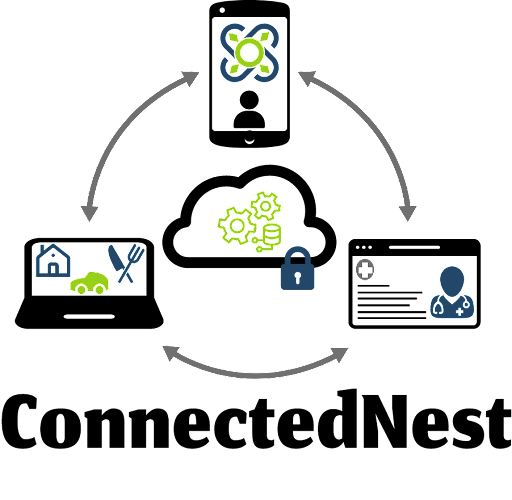
XanthosHealth leadership team: Pinar Karaca-Mandic, Demi Radeva, and David Haynes (from left to right)
David Haynes, a health geographer, assistant professor at the Institute for Health Informatics, and XanthosHealth co-founder, has dedicated his career to understanding that effective healthcare expands beyond the walls of a medical facility. Social determinants, such as access to transportation, financial stability, safe living and working conditions, and access to education, account for 80 percent of health outcomes but often remain barriers to a patient’s ability to receive quality care.
For example, individuals who are prescribed a treatment for their condition may struggle to follow it because the cost of obtaining the medication may be prohibitive, or they may lack the transportation needed to fill their pharmacy order, or both. Additionally, they may be food insecure, which can interfere with compliance with treatment that requires it to be taken with food.
In trying to solve these problems, with financial support from the University of Minnesota's Clinical and Translational Science Institute (CTSI), Haynes created Smart Community Health, an app that helps patients find appropriate social services near them and also stores key social determinants into electronic health records. Thanks to real-time updates, the app provides accurate information about resources such as food shelves or transportation services. Healthcare providers can use the app to better recommend appropriate social services and resources based on a patient’s unique circumstances.

Haynes then paired up with Pinar Karaca-Mandic, the C. Arthur Williams Jr. Professor in Healthcare Risk Management at the Carlson School of Management, who had prior experience in health IT. Karaca-Mandic previously co-led an interdisciplinary UMN team in the development of a smart phone-based application that collects and integrates patient-reported outcomes into the electronic health record, and that application won first place nationally in the Agency for Healthcare Research and Quality’s Step Up App Challenge. This technology debuted in 9 clinics as part of a pilot with Medstar Health in Washington, D.C.
Haynes and Karaca-Mandic applied for a CTSI Office of Discovery and Translation grant to better prepare their combined technology for commercialization. The pair next established startup XanthosHealth and secured an NIH Small Business Innovation Research (SBIR) phase 1 award and received a matching grant from Launch Minnesota. They also received feedback and support from the UMN Venture Center, a division of UMN Technology Commercialization, including technical support from Ryan Corcoran, an MBA student intern in the Venture Center, who assisted the XanthosHealth team in assessing and describing the commercial opportunity as part of the SBIR application.
XanthosHealth received national attention from the White House, which recently announced the formation of a coalition called Sync for Social Needs. This coalition pulls together high-profile health systems and health IT companies that are working to create and refine the standards for social needs tracking via electronic health records with an emphasis on health equity. XanthosHealth is both the only Minnesota company and the only startup to be included alongside healthcare information services giants such as Epic and Oracle.
The XanthosHealth co-founders hired Chief Strategy and Operations Officer Demi Radeva, a Carlson School of Management alum and adjunct faculty at the Medical Industry Leadership Institute, to lead the commercialization efforts of the company and are currently applying for a phase 2 SBIR award. They’re also interested in exploring venture capital funding or angel investment opportunities as well as participating in an incubator or accelerator.
XanthosHealth benefited from participating in the SBIR/STTR accelerator organized by Pat Dillon. The Minnesota SBIR has a new home on the web, and MNSBIR President Pat Dillon has a new email address: pat@minnesotasbir.org. Pat and her organization are great resources for researchers developing ideas and inventions that come out of a lab or research group.